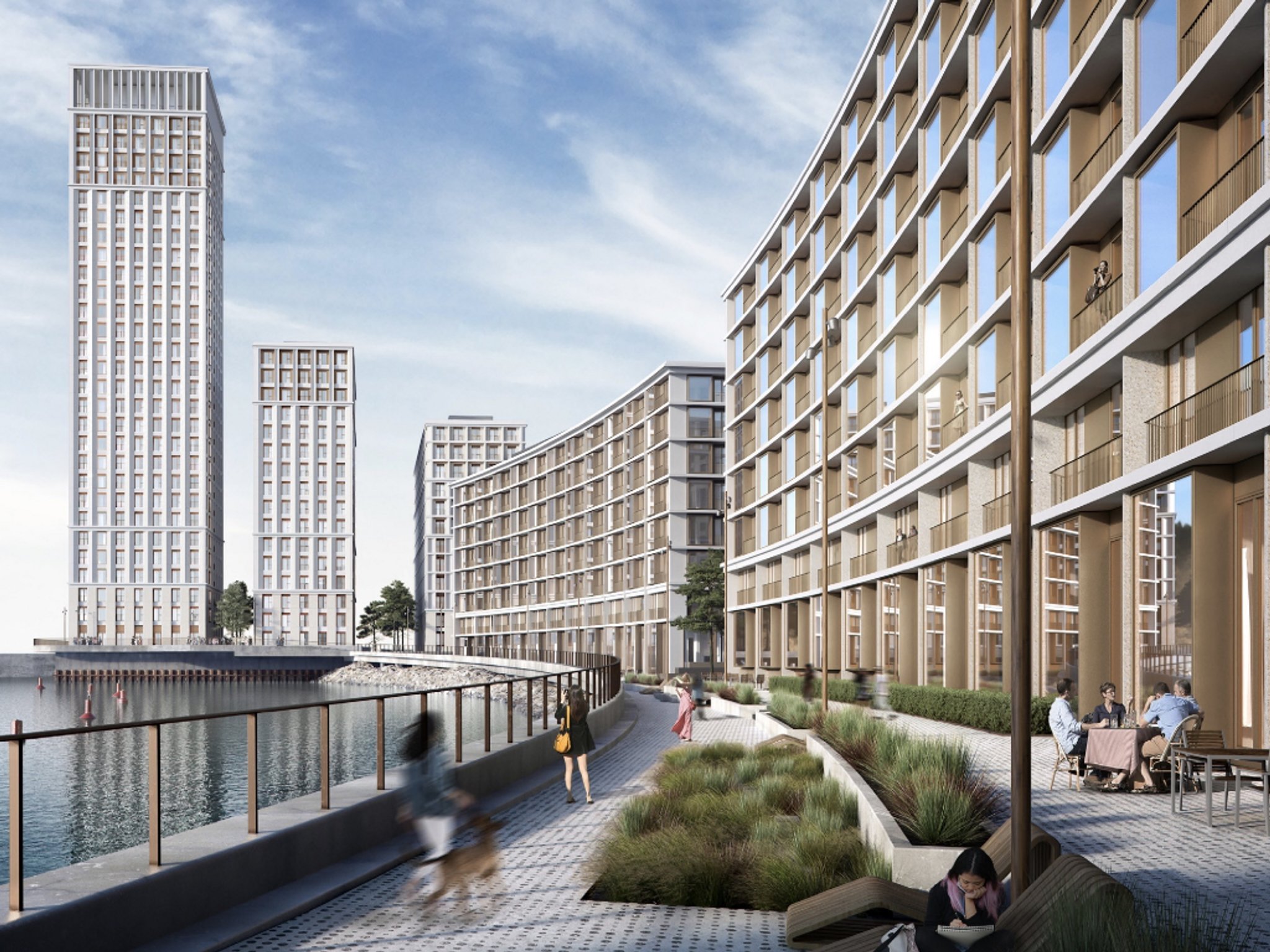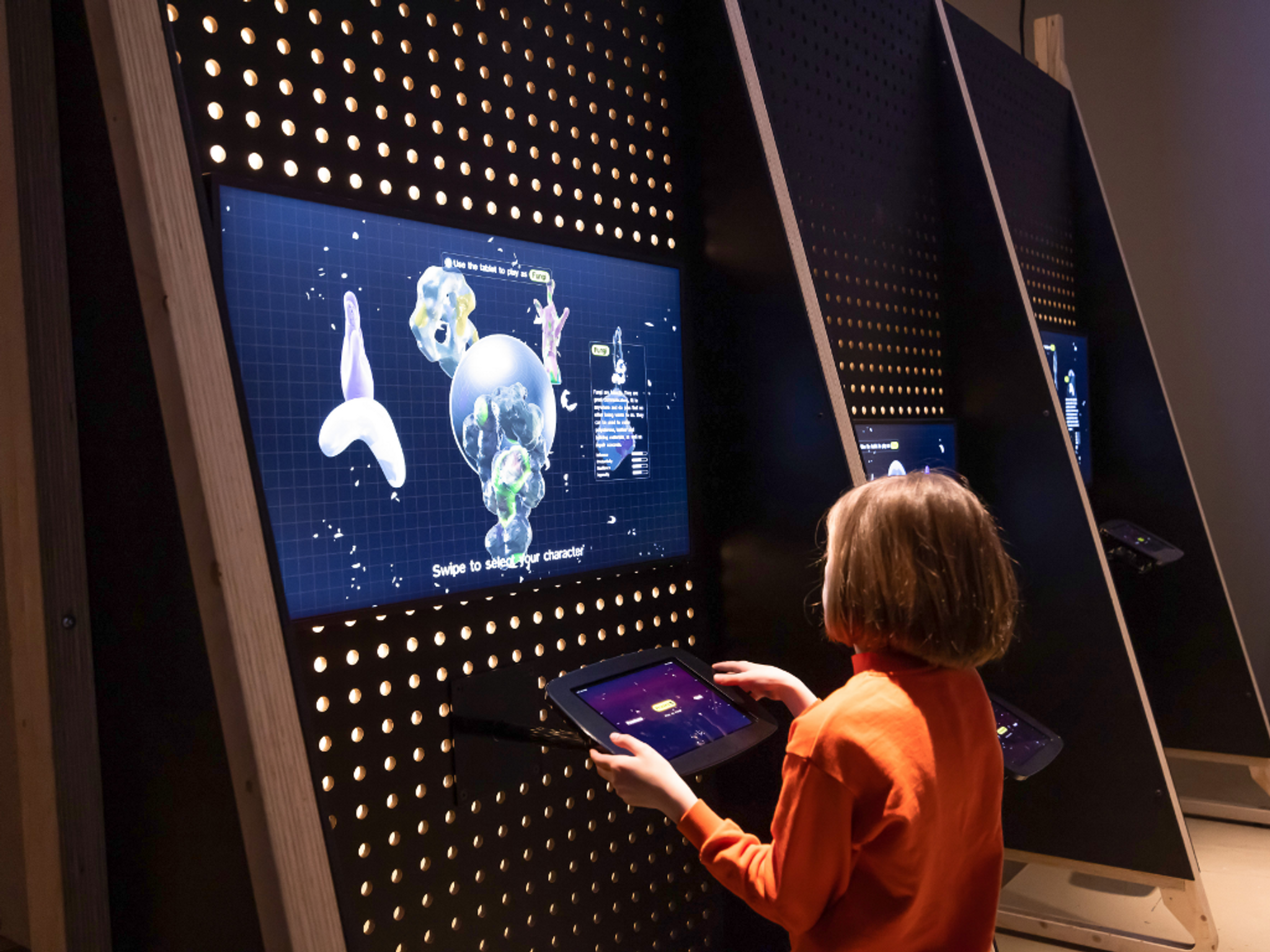How do people actually feel about self-driving vehicles?
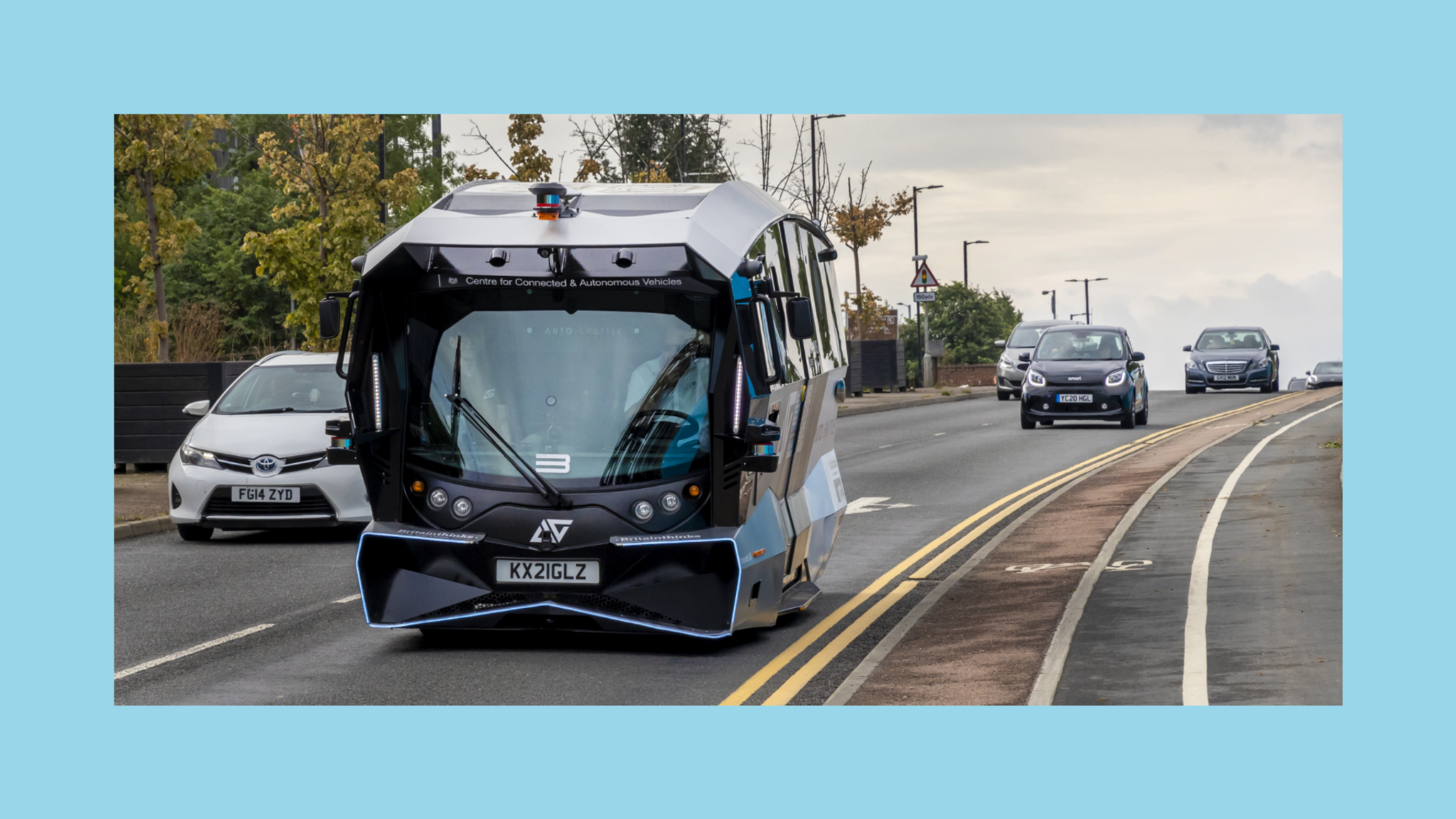
A self-driving auto shuttle during a demonstration in Manchester
How will our streets look by 2035? According to the UK Secretary for Transport, self-driving vehicles, or vehicles with such capabilities, will constitute 40% of new cars in the UK by that point – and our grocery deliveries and passenger services will be operating on the same technology.
The mobility world is changing at a fast pace. New technologies and services have appeared in the past decade, marking a transformative shift towards Mobility as a Service (MaaS). Technologies such as delivery drones and self-driving vehicles have the potential to radically change how we travel and how we (re)design and develop our transport system and built environment.
To confront these changes, it is important to assess how citizens actually feel about these new technologies, and about incorporating them into their daily lives. A lack of trust and hesitation could deter people from using them. However, the potential benefits of these technologies could turn the tables.
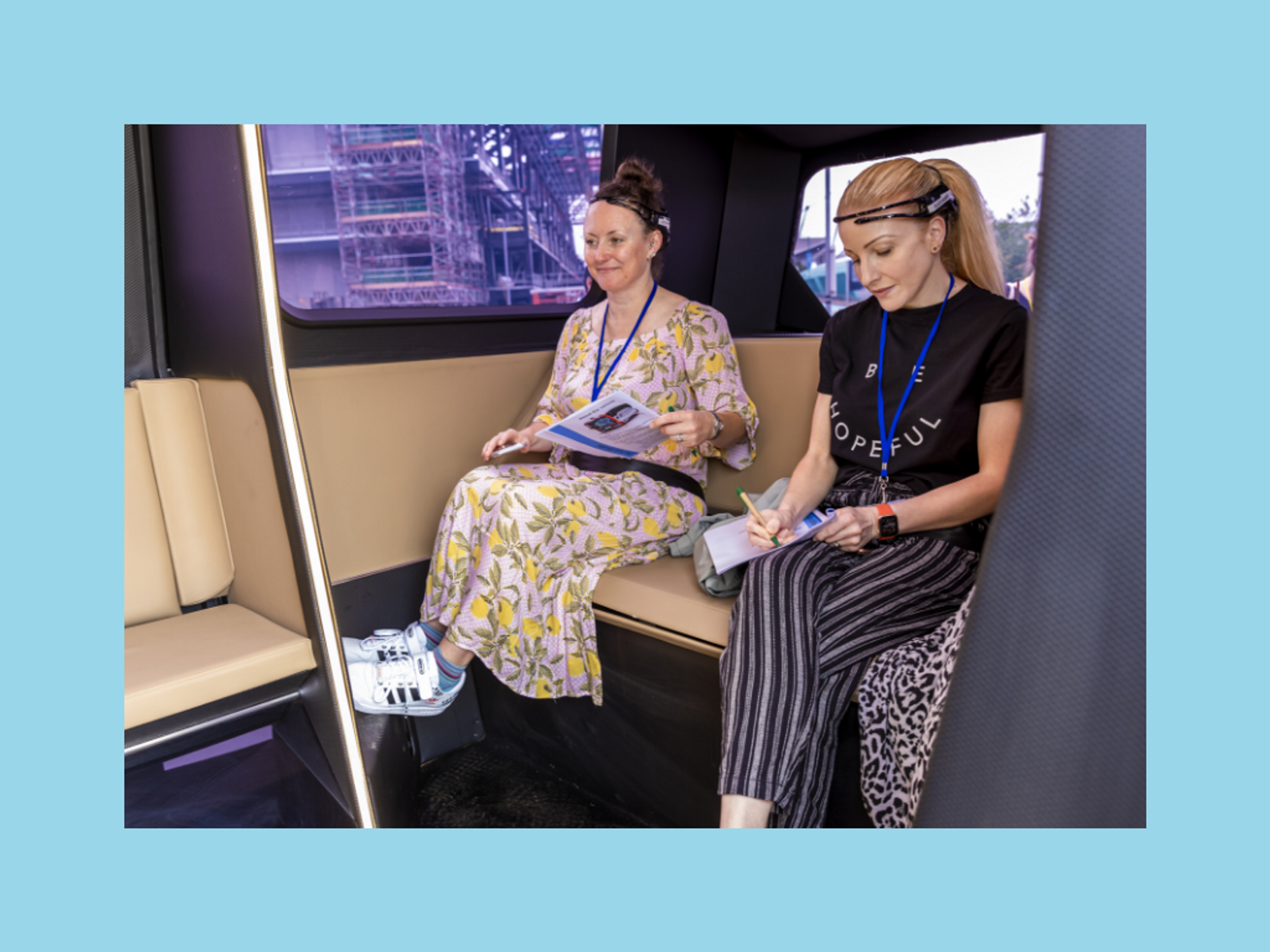
Participants wearing EEG headsets on board the self-driving auto shuttle demonstration in Manchester
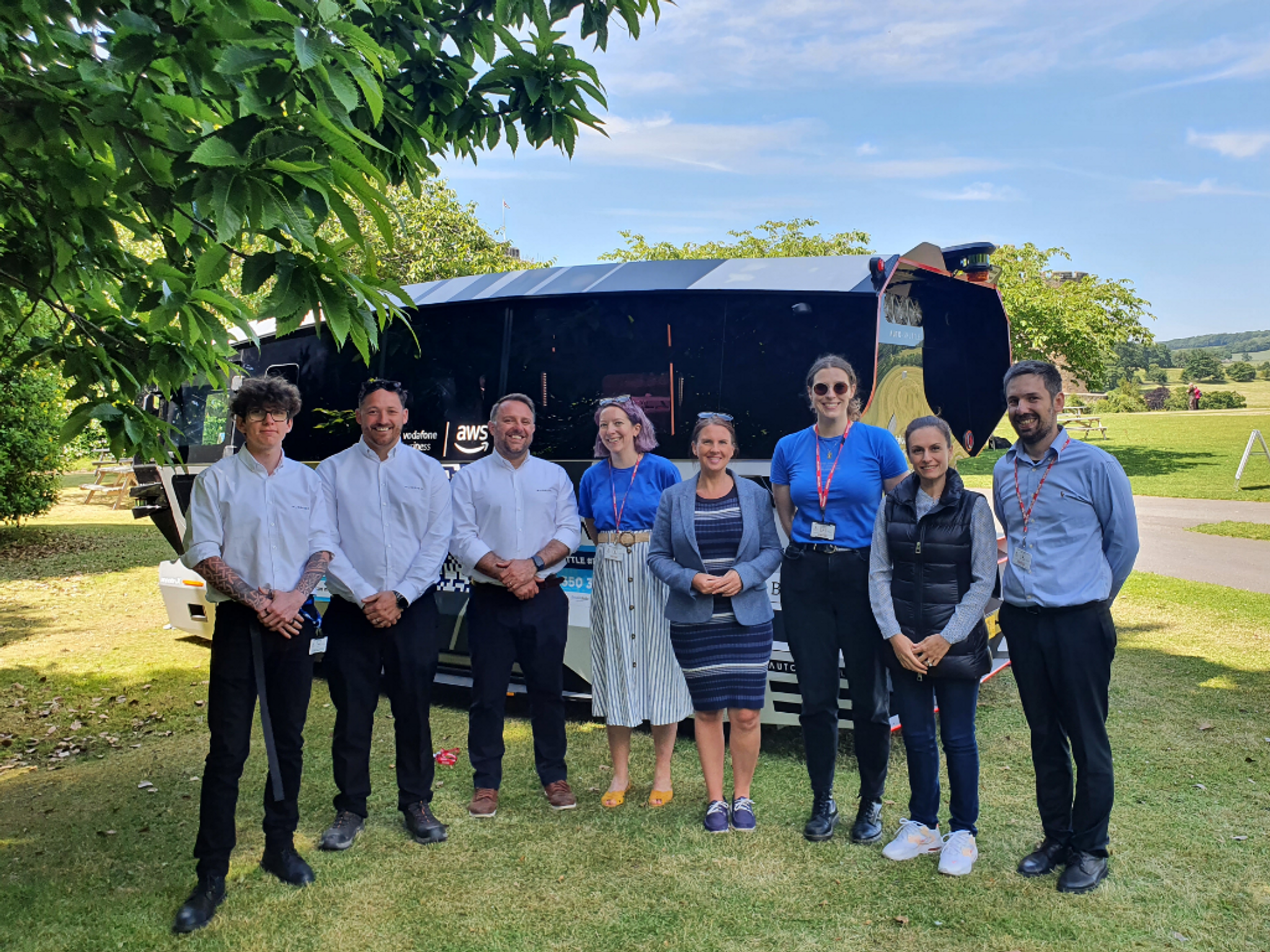
Minister of State for Transport, Trudy Harrison visits Alnwick demonstration and gets introduced to the EEG technology by MaaSLab
Self-driving electric vehicles are considered to be a step towards making greener and safer journeys, bringing about the end of urban congestion and ultimately reducing emissions and improving air quality. Self-driving technology is expected to improve road safety, but it can also help us achieve a more democratic way of travelling, providing mobility access to vulnerable and less advantaged population groups and rural areas. With this technology, planners and policy makers can reshape built environment solutions in order to promote sustainability in the urban core.
While there is tremendous potential for transforming the built environment, decisions should be taken collectively by local city authorities and citizens. A clear set of parameters of operation, as well as a comprehensive legislative framework, should be in place to both regulate this shift to self-driving and address economic, social and environmental challenges.
The future looks bright for envisioning and planning sustainable land use and transportation scenarios. The introduction of self-driving vehicles could reduce traffic and parking provision, which would lead to new city centre developments, wider pavements for pedestrians and more green areas, helping to reduce the urban heat island effect.
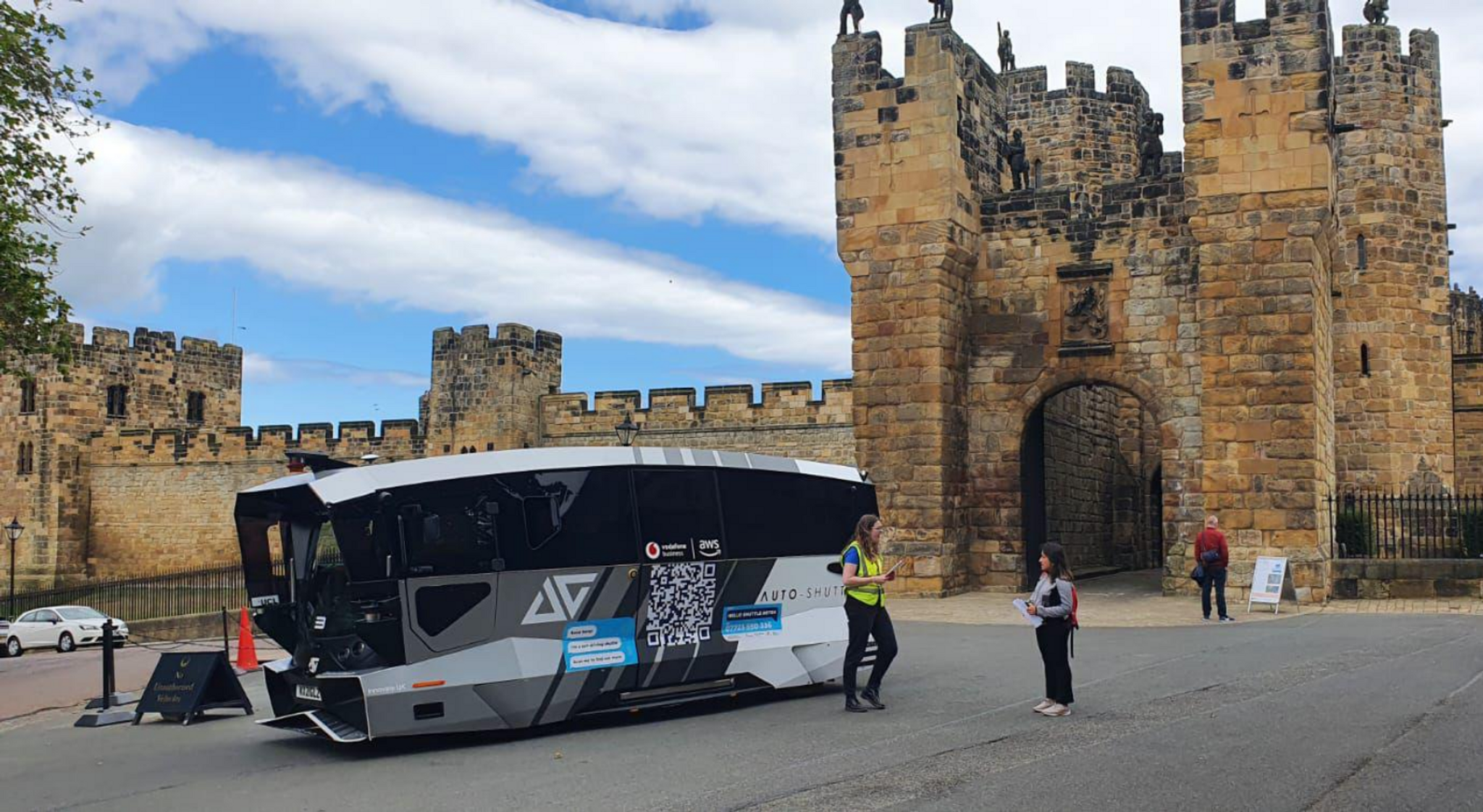
The self-driving auto shuttle in Alnwick Castle
The introduction of self-driving vehicles could reduce traffic and parking provision
With the continuous expansion of metropolitan areas, new mobility technologies are key to addressing the new challenges cities face, as they represent a sustainable transition to low-carbon transportation. A first step to this new era is the integration of automated vehicles and drones with traditional transport modes. Towards this goal, UCL MaaSLab has been leading a series of projects: HARMONY and MOVE2CCAM, funded by the European Commission’s Horizon programmes.
In collaboration with six regional authorities across Europe, the HARMONY project is demonstrating electric automated vehicles (AVs) and drones in real-life conditions, integrating them with traditional transport modes to understand the requirements, reactions and barriers – and collect real-world data. MOVE2CCAM explores the impact of CCAM (Cooperative, Connected and Automated Mobility) passenger and freight solutions on mobility, economy, public health and the environment.
Leading the technological innovation towards sustainable mobility is an important factor in achieving safer and greener cities. But how do passengers perceive this new reality?Commissioned by the UK Department for Transport (DfT), MaaSLab has teamed up with experts in the field, and seeks to understand how we currently travel, and how we could travel in the future in order to meet those needs.
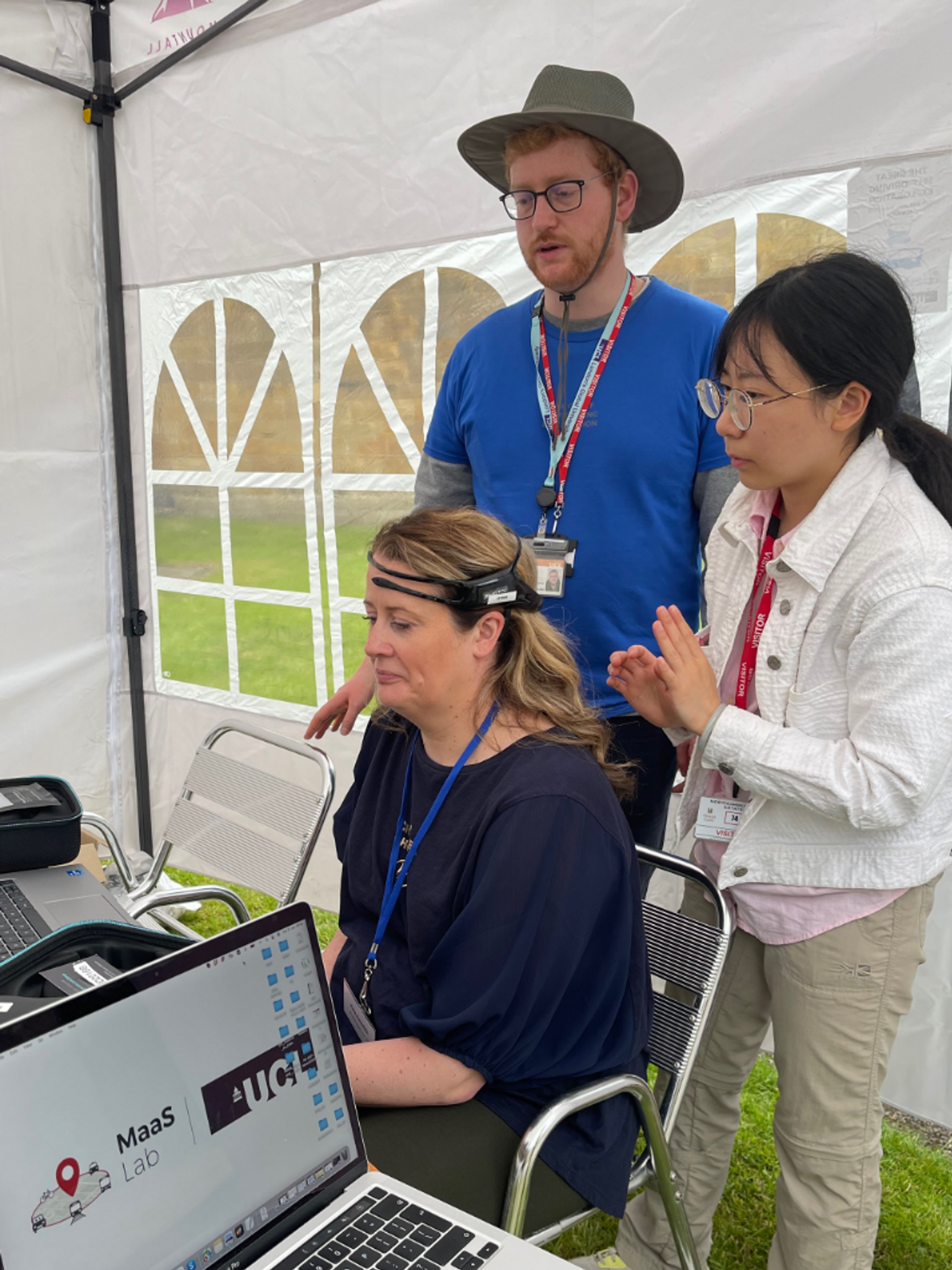
MaaSlab team demonstrating EEG headsets to the Alnwick participants prior to onboarding the self-driving auto shuttle
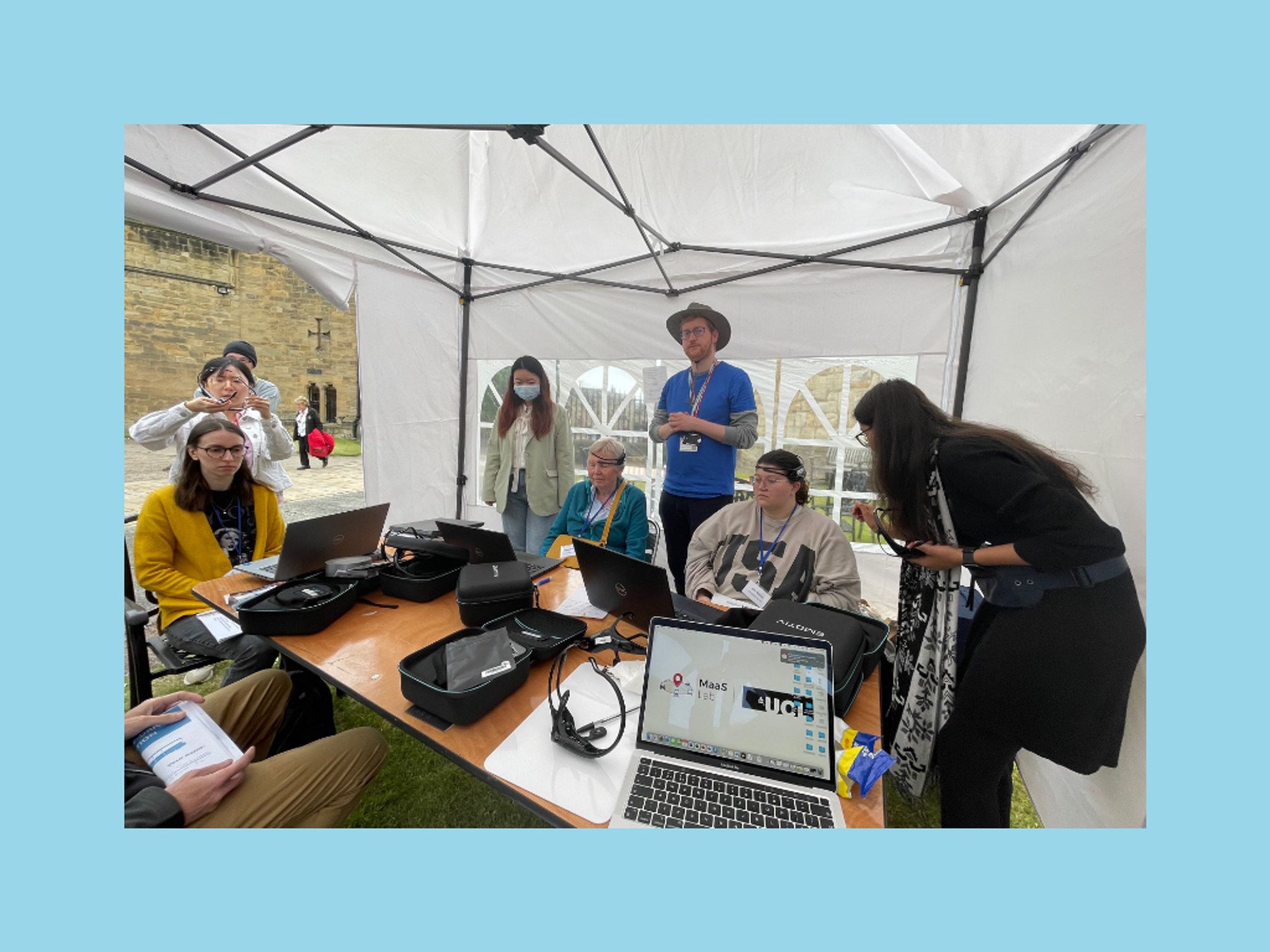
With ‘Great Self-Driving Exploration’ demonstrations, we are working collaboratively to expose people to self-driving vehicles in the most realistic way: participants across the UK are invited to ride on self-driving shuttles and self-driving pods in a real-world, open-road environment. MaaSLab documents their emotions, feelings and views through unique technologies to better understand acceptance and potential adoption.
We use non-invasive, lightweight EEG (electroencephalography) headsets which translate real-time brain activity during trials into emotional responses. EEG readings indicate whether the passengers feel engagement, excitement, focus, interest, stress, or relaxation. These demonstrations take place in three different locations – Alnwick, Manchester and Taunton – allowing the team to identify whether there are any differences in responses from passengers residing in rural areas, towns or cities as well as across a range of socio-economic factors.
So how do we really feel about riding a self-driving car or using drone services? This is what our lab aims to find out by analysing the readings from the EEG headsets in relation to the vehicle motions, in order to understand the broader attitudes towards this new technology. Acceleration, turning and deceleration are all monitored through video cameras which also allow for pairing of real-time emotional responses to real-time vehicle motions. The demonstrations' real-world setting further stimulates the emotional response regarding events happening in real time, and can thus shed light on psycho-physiological and behavioural changes.
In addition, our lab is organising a series of activities with citizens, authorities and industry to co-develop designs for these innovative technologies and explore what their impact on the economy, environment, and citizens’ wellbeing will be.


